Ukraine round-up: Possible war crimes and an attack on Russia
- Published
Watch: Jeremy Bowen finds bodies on a road Russians occupied outside Kyiv
As Russia pulls its forces back from areas around Ukraine's capital Kyiv, the BBC has seen evidence of potential war crimes on the outskirts of the city.
Our correspondent Jeremy Bowen counted 13 bodies on one small stretch of highway where, just hours earlier, Russian forces had been in control.
We know who two of the dead were: a Ukrainian father and mother who had been fleeing to the capital with their daughter and an elderly woman. We know this because their deaths - as he put his hands up in surrender, trying desperately to stop Russian forces firing on the car they were travelling in - were caught on camera by a drone.
In other places along the road, attempts had been made to cover up the bodies.
Our correspondent says we don't know what happened to these people, but a credible working assumption for any investigation must be that the other dead people were killed by either the tank crew seen in the drone video, or other Russian soldiers. The drone footage has been handed to the authorities for investigation.
There have been numerous allegations of war crimes made since the start of the invasion in February, and both the UN and the International Criminal Court are looking into them.
Russia accuses Ukraine of striking oil depot on its territory
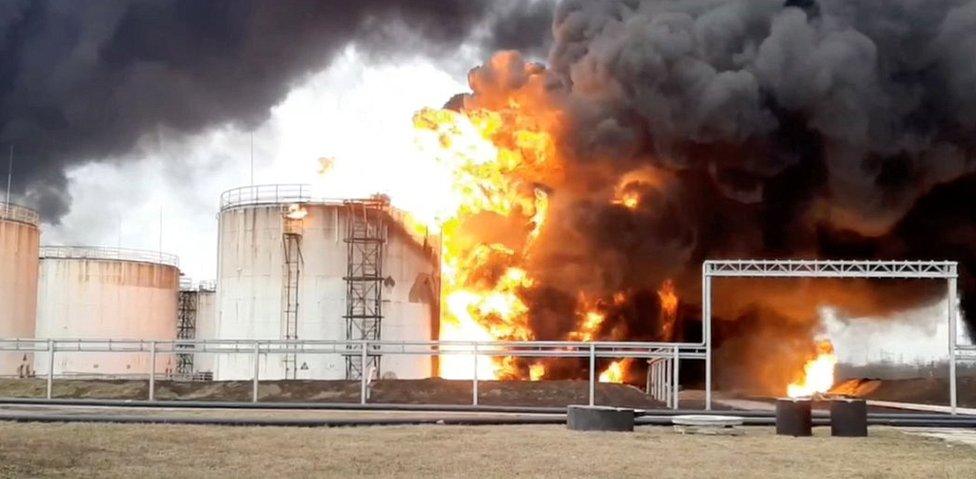
Several fuel tanks are ablaze, Russian media report
Russia accused Ukraine of being responsible for a huge fire at an oil depot in the Russian city of Belgorod.
Russian officials said two Ukrainian military helicopters had crossed the border from Ukraine and fired missiles at the facility.
Vyacheslav Gladkov, governor of the Russian city of Belgorod, some 40km (25 miles) from the border, said the early morning rocket attack left eight fuel tanks ablaze.
Initial statements from Ukraine would neither confirm nor deny that - but later in the day, the secretary of Ukraine's security council, Oleksiy Danilov, said the Russian version of events "does not correspond to reality".
But if it is true that Ukraine mounted the attack, our defence correspondent Jonathan Beale notes, it would mark the first time that Ukrainian aircraft have flown into Russian airspace to hit a target, bringing the war home to Russia.
And it isn't impossible: the skills needed - flying low and fast to avoid detection - are ones Ukrainian pilots have been honing in recent years as the country battled separatists in the east.

Evacuation team fails to reach Mariupol
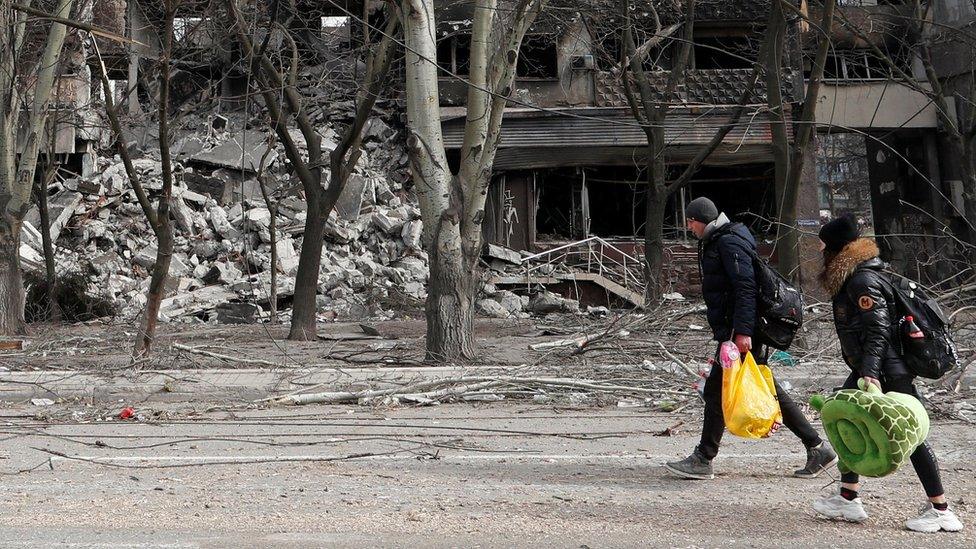
A Red Cross team which had hoped to make it to the besieged city of Mariupol to help with an evacuation effort was forced to turn back after "arrangements and conditions made it impossible to proceed".
The team of nine from the International Committee of the Red Cross (ICRC) had been hoping to help evacuate some of the thousands of residents still trapped in the coastal city, large parts of which have been destroyed in the fighting.
The regional governor has accused Russia of breaking a promise to allow a humanitarian corridor out of Mariupol.
The ICRC said it will try again on Saturday. It had initially been planned for Thursday.

What's happening in the east?
Moscow has begun shifting its attention from the capital and the north in general, trying instead to encircle Ukraine's forces in the east of the country.
Its army is moving south, taking control of the city of Izyum and bombarding a succession of towns to the east. Eventually, it hopes to move further south still, to the town of Slovyansk.
But what is it that Russia wants with this region, known as the Donbas? On paper at least, the aim is to "liberate" its Russian-speaking majority.

The question remains: can Moscow's forces defeat the Ukrainian army here and - crucially - do the people of this former coal and steel-producing region want to be liberated?
As the BBC's Paul Kirby has been finding out, a shared language may not be enough to win the region's loyalty.

Russia not cutting off the gas - yet
The row between Europe and Moscow over how to pay for Russian gas continues.
However, despite 1 April being the first day that all Russian gas must be paid for in roubles and through Russian bank accounts, the flow of gas has not been stopped.
This is because shipments that have already been paid for are not affected.
But anything ordered from today onwards will need to follow the new rules, it seems.

War in Ukraine: More coverage
WAR CRIMES: Gruesome evidence on road to Kyiv
YOUR QUESTIONS: Could Ukraine win the war?
READ MORE: Full coverage of the crisis, external

Related topics
- Published1 April 2022
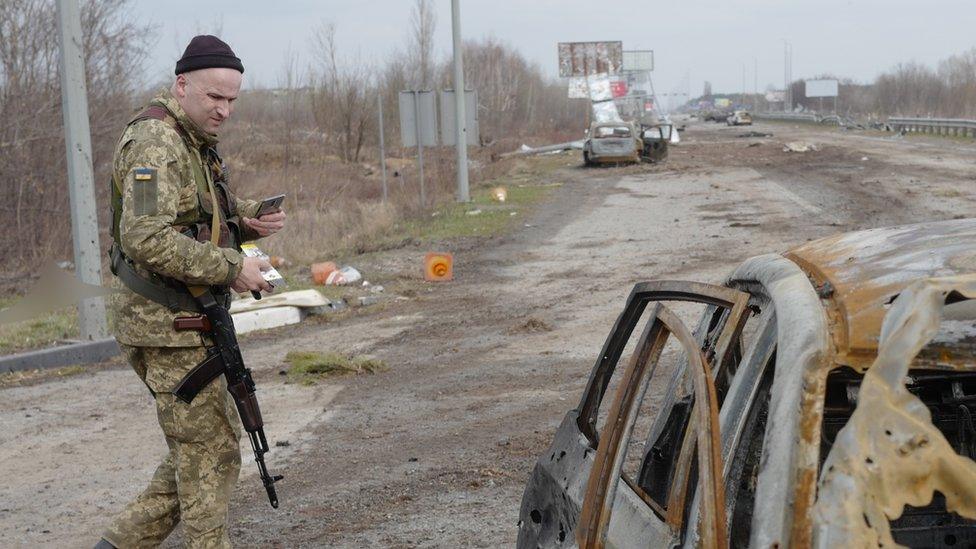
- Published26 May 2022
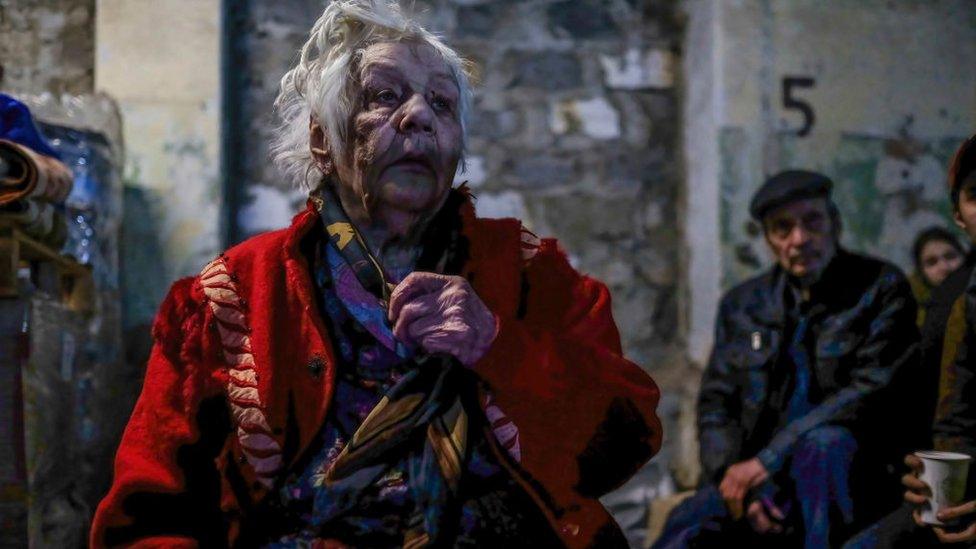
- Published1 April 2022
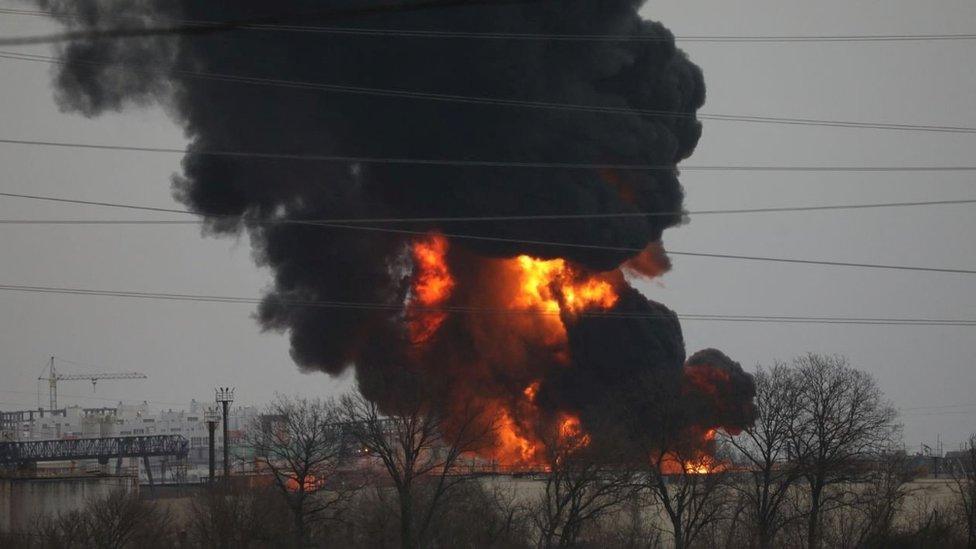
- Published1 April 2022
